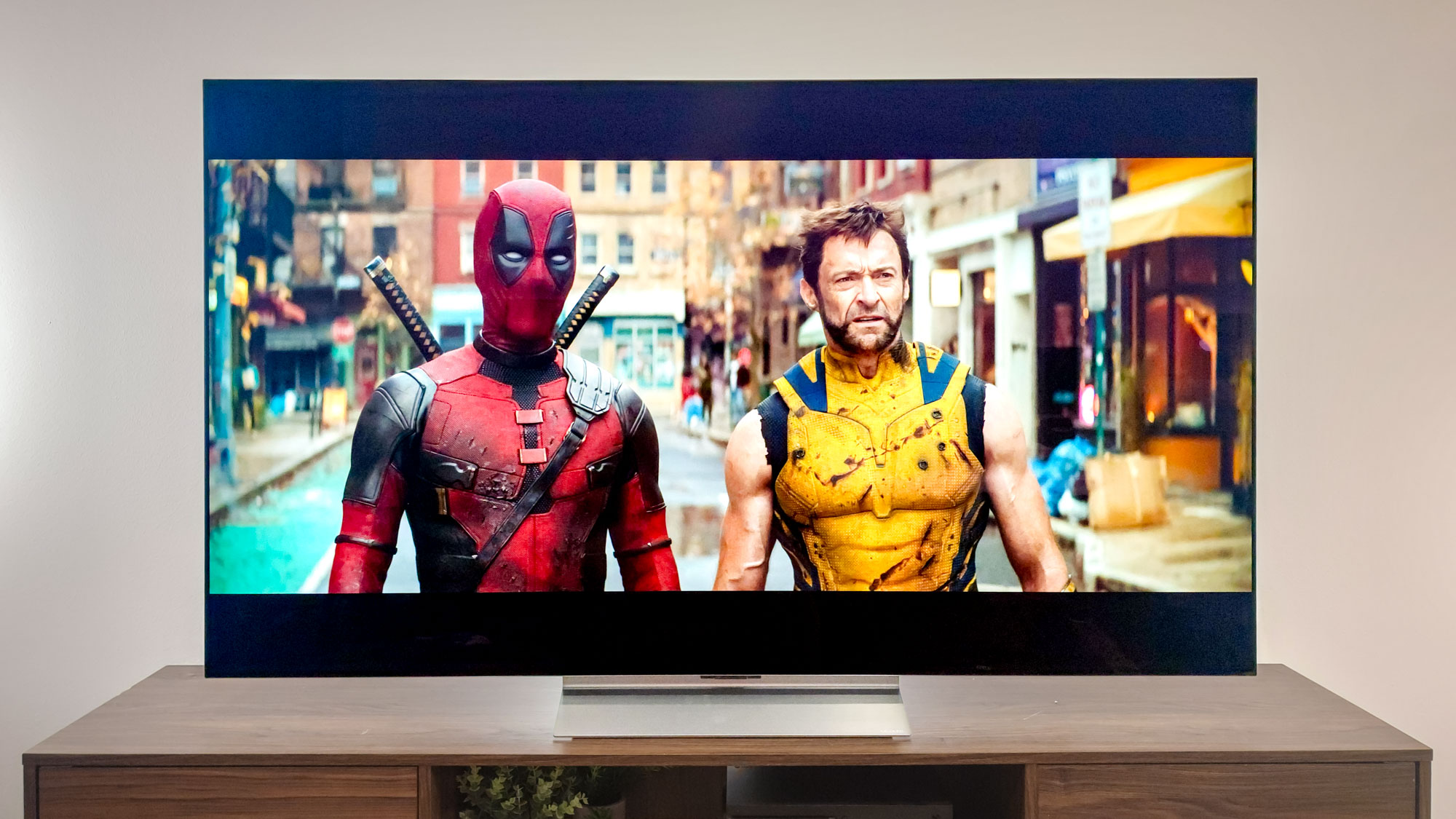California Kill-Switch Law Based on Garbage Research
The California law requiring kill switches for smartphones is a good one in theory, but it comes with one caveat: It's based on nonsense.

If you follow tech news, you're probably aware that California Gov. Jerry Brown yesterday (Aug. 25) signed into law legislation that requires all smartphones sold in the state after July 2015 to come with a "kill switch" that renders stolen phones inoperable, even after a hard reset.
The new law is a good one in theory, but it comes with one striking caveat: It's largely based on nonsense.
MORE: Smartphone Kill Switch: What It Is, How It Might Work
You can read Senate Bill No. 962 for yourself. Prepare to be shocked by how simple it is to deceive politicians with shoddy research and bogus claims. The bill aims to make smartphone kill switches ubiquitous to deter thieves, which is fair enough. But if you look at the reasons why, the whole thing starts to unravel.
Horsefeathers and poppycock
Page 3 of the bill details the justifications for enacting a kill-switch law, and starts to go off the rails almost immediately. Section (c) claims that "113 smartphones are lost or stolen every minute in the United States."
That figure seemed high, so we ran the numbers: 113 smartphones every minute amounts to nearly 60 million lost or stolen smartphones in the U.S. every year. Based on numbers from the U.S. Census Bureau and the Pew Research Center, approximately 137 million Americans own smartphones. Do a full 44 percent of American smartphone owners really lose their smartphones, or have them forcibly taken, in the course of any given year?
Sign up to get the BEST of Tom's Guide direct to your inbox.
Get instant access to breaking news, the hottest reviews, great deals and helpful tips.
The "113 smartphones every minute" figure turns out to be balderdash. We tracked down the New York Times article cited in the bill as the source of the statistic. "Article" is a bit of a stretch, since it was actually a freelancer's posting on the Bits tech-business blog, and never showed up in The Times' print edition.
The posting, "Smartphone Makers Pressed to Address Growing Theft Problem" from June 13, 2013, does indeed claim that 113 smartphones are lost or stolen every minute. The author does not cite sources for that figure. We dug a little deeper.
Curiouser and curiouser
As it turns out, the source of the number is Protect Your Bubble, an insurance company that specializes in coverage for smartphones and other gadgets. By all accounts, Protect Your Bubble is a pretty good organization, but it's there to sell insurance, not to provide reputable tech statistics.
In November 2012, Protect Your Bubble created and distributed to the press an infographic entitled "The Worst Cities for Smartphone Loss and Theft," which appears to be the original instance of the "113 smartphones every minute" claim.
Protect Your Bubble did not pull this number out of thin air. The company's website linked to a March 2012 news release highlighting an in-house study conducted by reputable mobile security company Lookout. We contacted both Protect Your Bubble and Lookout to clarify matters, but have not yet received a response to either inquiry.
Lookout's report is well researched and, as far as we can tell, fairly accurate. It also does not contain the "113 smartphones per minute" claim anywhere.
What the Lookout study actually says is quite different. A complementary Lookout blog post details the news release's claims more thoroughly. Lookout claims that it helped 9 million of its 15 million users worldwide — not merely in the U.S. — locate their phones in 2011.
That breaks down to about one "lost," and perhaps quickly found, smartphone every 3.5 seconds. From there, the Protect Your Bubble infographic's claims fall apart.
First and foremost, the math is wrong. One smartphone every 3.5 seconds shakes out to 17 lost smartphones per minute, which is a far cry from 113. We cannot figure out where the figure of 113 comes from, even though Protect Your Bubble claims its information comes from Lookout's study.
More importantly, "lost" in the context of the Lookout study does not mean "irretrievable." Lookout was one of the first companies to offer services to find phones that had fallen between couch cushions or been left behind at restaurants. In its report, Lookout made no claims about which percentage of "lost" smartphones had been stolen, let alone those never recovered, but even if the number were 100 percent, it would still differ from the New York Times figure by a factor of almost 10.
Finally, remember what the bill claimed: "113 smartphones are lost or stolen every minute in the United States" (emphasis ours). Lookout's numbers referred to its worldwide customer base and included only its own customers (for obvious reasons). There's no guarantee that Lookout customers are representative of American smartphone owners as a whole.
This one vital claim of 113 lost or stolen smartphones per minute — which helped create a state law that, due to California's size and economic power, will greatly impact the entire smartphone industry — is based on nothing more than ill-informed syllogism and fuzzy math.
Lies, damned lies and statistics
Section (e) of the legislation makes a somewhat misleading claim as well.
"Theft of smartphones in Los Angeles increased 12 percent in 2012, according to the Los Angeles Police Department." This is true, of course, but other facts tell a slightly less alarming story.
According to the Pew Research Center, smartphone ownership among American adults in 2011 was 33 percent; in 2012, it was 45 percent. Smartphone theft may have increased because 12 percent of Americans bought their first smartphones that year; the rate of smartphone ownership increased even more, by 36 percent.
To be fair, some of the information in the bill is accurate. Section (a) claims that according to the Federal Communications Commission, 30 to 40 percent of robberies in major U.S. cities involve smartphone theft. Section (b) asserts that 1.6 million Americans were targeted for smartphone-related robberies. Sections (f) and (g) are likewise fairly down-to-earth assertions about international theft rings and how requiring a kill switch could deter thieves.
MORE: A Smartphone Kill Switch Won't Stop Smartphone Theft
Even so, the fact that one of the central tenets behind the bill is delicatessen-grade baloney does not speak well of the legislation. Smartphone kill switches should be able to stand or fall on their own merits. Supporting them with hazy claims only hurts the cause's credibility.
Your smartphone might get lost. Someone might steal it. But you have resources at your disposal to retrieve it, with or without a kill switch. Don't fall for exaggerated claims when the truth will serve you better.
- 10 Best Apps for Finding Lost Smartphones
- Best Android Antivirus Software 2014
- 12 Mobile Privacy and Security Apps
Marshall Honorof is a Staff Writer for Tom's Guide. Contact him at mhonorof@tomsguide.com. Follow him @marshallhonorof and on Google+. Follow us @tomsguide, on Facebook and on Google+.
Marshall Honorof is a senior editor for Tom's Guide, overseeing the site's coverage of gaming hardware and software. He comes from a science writing background, having studied paleomammalogy, biological anthropology, and the history of science and technology. After hours, you can find him practicing taekwondo or doing deep dives on classic sci-fi.
-
rantoc And in later news all American Smart Phones got bricked when a bored hacker got hold of the kill switch codes....Reply -
The_Bytemaster Fortunately, all Windows Phones already feature this capability built in. You just have to enable it on your phone, then login to the website.Reply
Even more valuable, it can ring you phone even when you have it on silent, so you can figure out which couch it fell into. -
jasonelmore California has always had stupid laws. One day its gonna bite them in the ass. What if one of these companies refuses and just chooses not to sell their phone in California? the consumer's will pay, not the government.Reply -
cats_Paw Hey, Captain Obvious, Since when does ANY government pay for ANYTHING? Its consumers money as well you know...Reply
Whatever happens they will eventually figure it out. Im almost sure this is totally pointless. Its like DRM, hackers and criminals will find a way around it, but the increase cost in production and services will increase phone costs.
Lucky for me I dont like smartphones in the first place, and since a simple phone is not worth the money, its highly unlikely that it will get stolen.
-
gamerk316 Strawman argument alert. The "one number is wrong so the entire law should be tossed" argument is a failing argument to make.Reply -
gggplaya Most politics are based on biased research. They'll scope in or broaden statistics definitions to show exactly what they want, even though it's not representative of reality.Reply
Like currently the EPA saying carbon emissions from cars causes 500k premature deaths, and kills 2000 kids a year. When you look at the data it's garbage. Sure, we are making our planet worse, something needs to be done about carbon emissions, but don't put out garbage data to make a shocking enough point to pass more regulation.

